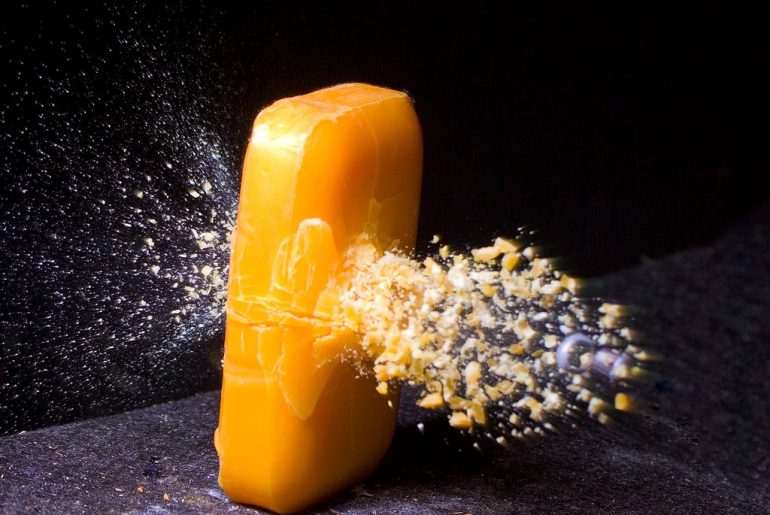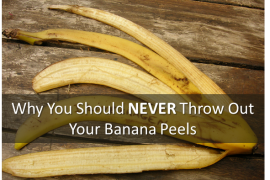5 reasons why you shouldn’t use Antibacterial soap
Have we become overly concerned with germs and sanitation. Our immune systems need to interact with a wide variety of bacteria in order to get stronger and we’ve been making this process increasingly difficult.
Last year the FDA made a statement that there was no added benefit to antibacterial soaps over plain soap and water for cleanliness or illness prevention.
Essentially the report contained 5 reasons why you shouldn’t use antibacterial soap.
1 Antibacterial soaps are no more effective than conventional soap and water
As mentioned in the announcement 42 years of FDA research—along with countless independent studies—have produced no evidence that triclosan provides any health benefits as compared to old-fashioned soap.
“I suspect there are a lot of consumers who assume that by using an antibacterial soap product, they are protecting themselves from illness, protecting their families,” Sandra Kweder, deputy director of the FDA’s drug center, told the AP. “But we don’t have any evidence that that is really the case over simple soap and water.”
Manufacturers say they do have evidence of triclosan’s superior efficacy, but the disagreement stems from the use of different sorts of testing methods. Tests that strictly measure the number of bacteria on a person’s hands after use do show that soaps with triclosan kill slightly more bacteria than conventional ones.
But the FDA wants data that show that this translates into an actual clinical benefit, such as reduced infection rates. So far, analyses of the health benefits don’t show any evidence that triclosan can reduce the transmission of respiratory or gastrointestinal infections. This might be due to the fact that antibacterial soaps specifically target bacteria, but not the viruses that cause the majority of seasonal colds and flus.
2 Infection Risk
Antibacterial soaps have the potential to create antibiotic-resistant bacteria
The reason that the FDA is making manufacturers prove these products’ efficacy is because of a range of possible health risks associated with triclosan, and bacterial resistance is first on the list.
Heavy use of antibiotics can cause resistance, which results from a small subset of a bacteria population with a random mutation that allows it to survive exposure to the chemical. If that chemical is used frequently enough, it’ll kill other bacteria, but allow this resistant subset to proliferate. If this happens on a broad enough scale, it can essentially render that chemical useless against the strain of bacteria.
This is currently a huge problem in medicine—the World Health Organization calls it a “threat to global health security.” Some bacteria species (most notably, MRSA) have even acquired resistance to several different drugs, complicating efforts to control and treat infections as they spread. Health officials say that further research is needed before we can say that triclosan is fueling resistance, but several studies have hinted at the possibility.3 Hormone Disruption
A number of studies have found that, in rats, frogs and other animals, triclosan appears to interfere with the body’s regulation of thyroid hormone, perhaps because it chemically resembles the hormone closely enough that it can bind to its receptor sites. If this is the case in humans, too, there are worries that it could lead to problems such as infertility, artificially-advanced early puberty, obesity and cancer.
These same effects haven’t yet been found in humans, but the FDA calls the animal studies “a concern”—and notes that, given the minimal benefits of long-term triclosan use, it’s likely not worth the risk.4 The soaps might lead to other health problems, too
There’s evidence that children with prolonged exposure to triclosan have a higher chance of developing allergies, including peanut allergies and hay fever. Scientists speculate that this could be a result of reduced exposure to bacteria, which could be necessary for proper immune system functioning and development.
Another study found evidence that triclosan interfered with muscle contractions in human cells, as well as muscle activity in live mice and minnows. This is especially concerning given other findings that the chemical can penetrate the skin and enter the bloodstream more easily than originally thought. A 2008 survey, for instance, found triclosan in the urine of 75 percent of people tested.5 Antibacterial soaps are bad for the environment
When we use a lot of triclosan in soap, that means a lot of triclosan gets flushed down the drain. Research has shown that small quantities of the chemical can persist after treatment at sewage plants, and as a result, USGS surveys have frequently detected it in streams and other bodies of water. Once in the environment, triclosan can disrupt algae’s ability to perform photosynthesis.
The chemical is also fat-soluble—meaning that it builds up in fatty tissues—so scientists are concerned that it can biomagnify, appearing at greater levels in the tissues of animals higher up the food chain, as the triclosan of all the plants and animals below them is concentrated. Evidence of this possibility was turned up in 2009, when surveys of bottlenose dolphins off the coast of South Carolina and Florida found concerning levels of the chemical in their blood
What to do? see next page
Source: smithosnian.com
Image: nebamix







4 Comments
I think they should ban schools from using theses and hand sanitizer. What happened to washing your hands with soap and water.
Definitely gives people a false sense of immunity.
Yes…yes.. I use dial and follow up with a bodywash
Antibacterial soaps are not allowed in my house!